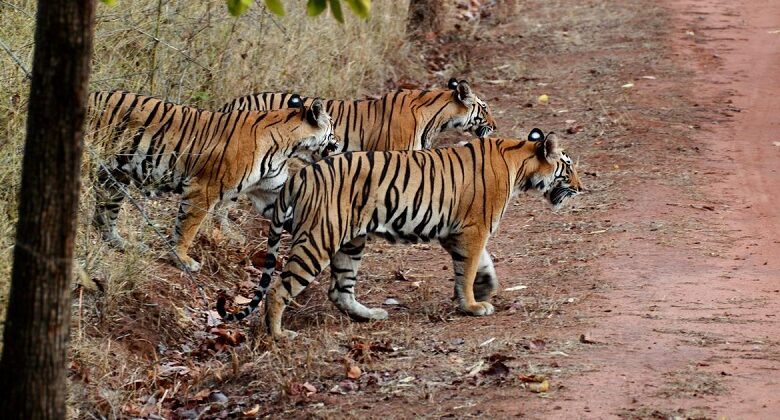Furore Erupts Over Nepal’s Controversial Proposal for Tiger Hunting by Wealthy Foreigners

Nepal’s environment minister, Birendra Mahato, has stirred up a storm by suggesting the idea of allowing affluent foreigners to hunt tigers for “sport.” The proposition has been met with outrage from wildlife experts, conservationists, and local community representatives alike. Mahato raised this contentious topic during a recent podcast interview, revealing that he had been approached by US and Japanese hunters willing to pay substantial sums to hunt tigers in Nepal. However, this proposal has ignited widespread condemnation due to its potential negative ecological and cultural consequences.
The backdrop to this debate is Nepal’s commendable success story in tiger conservation, with the population of the Panthera tigris having tripled over the past 12 years. Mahato contends that the country might face challenges of an overabundance of tigers in relation to available space and resources, leading to heightened human-animal conflicts and scarcity of prey. He proposes that revenue generated from allowing tiger hunting could be allocated towards conservation efforts, with a suggested price tag of $25 million for each killed tiger.
Critics, however, vehemently oppose Mahato’s idea, arguing that “sport hunting” could result in catastrophic ramifications for Nepal’s tiger conservation achievements. Mark Elbroch, director of the puma program at Panthera, a global wildcat conservation nonprofit, asserts that hunting carnivores like tigers not only fails to reduce conflicts but could exacerbate the issue. A study led by Elbroch presents five hypotheses suggesting that killing tigers may inadvertently escalate problems, leading to increased tiger density, altered predator-prey balance, shifts in prey behaviour, and a false sense of security among people.
Elbroch also highlights the potential loss of essential social roles within the tiger population, with the removal of key individuals disrupting the network dynamics. Tigers of various ages and sexes contribute significantly to the social structure, including the maintenance of territory and population balance. The demise of crucial individuals, such as resident adult male and female tigers, can create imbalances that have ripple effects on the population.
Neil Carter, an associate professor of environment at the University of Michigan, emphasizes the significance of various tiger roles within the social network. Adult male tigers, for instance, play a pivotal role in connecting different clusters of tigers, while adult females contribute to network expansion and territorial inheritance. The death of central individuals could disrupt the network disproportionately.
Aside from ecological consequences, the proposal also raises cultural concerns, particularly for Indigenous communities such as the Tharu people living around Chitwan. These communities were displaced to conserve tigers, and the big cats hold religious significance for them. The idea of allowing hunters to kill tigers for money is met with strong opposition due to the deep cultural and spiritual connections these communities share with the animals.
Nepal faces the complex challenge of coexistence with its growing tiger population amid expanding human settlements. While the tiger population has thrived due to conservation efforts, human-tiger conflicts have increased as both species vie for space and resources. The suggestion of allowing tiger hunting introduces a counterproductive element that threatens to undermine collaborative conservation efforts and disrupt the delicate balance achieved.
News Mania Desk / Agnibeena Ghosh 10th August 2023






